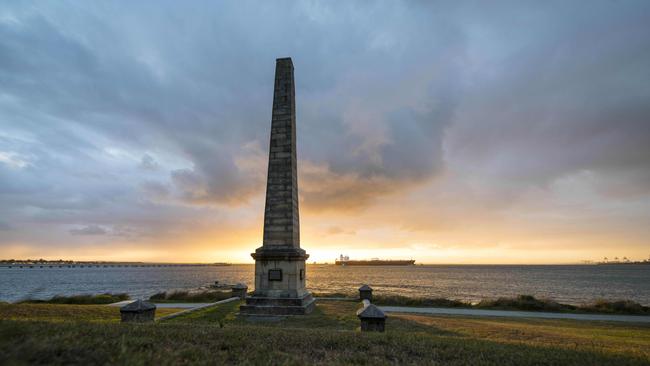Cook’s mighty endeavour transformed the world

Three years after setting out, the Endeavour arrived back in Britain laden not with gold or silver but with a new world of knowledge that transformed mathematics, navigation, geology, geography, botany, nutrition, psychology, astronomy, medicine, cartography and languages, Trent Dalton writes on Wednesday. Fresh insights and a mass of new plants came from Botany Bay, where Cook anchored for just over a week. The sojourn allowed botanist Joseph Banks and others to explore the surrounding bushland creeks, scrub and grasslands. The stop also gave the Endeavour’s nanny goat, provider of milk to the crew, a chance to graze after two years at sea. The crew later saw their first kangaroo, their Anglicised name for the animal the natives called gangurru, near what is now Cooktown. It was “cooked for our dinners”, Banks noted.
Scott Morrison — whose electorate, named after Cook, includes the landing spot — is right when he says this anniversary represents a merging of histories. The continent’s indigenous people had arrived 60,000 years earlier and we honour their resilience, wisdom, custodianship and stewardship. Indigenous culture is a fundamental element of modern Australia. The coming of Cook’s party, as the Prime Minister said, marked “a point in time from which we embarked on a shared journey, which is realised in the way we live today. Our shared history tells the story of all of us”. From that historic day onwards there has been, as lawyer Noel Pearson has written about Australia Day, two perspectives: “From eyes on board ship, this was a settlement, and from eyes on shore, an invasion.” Cook’s descendant, Kate Cook, who lives in Melbourne, told Dalton: “If this date becomes an opportunity for our nation to advance further, together, then that would be an incredible result.”
Commemorations of Cook’s 126-day journey along the east coast, from Point Hicks in Victoria to Cape York atop Queensland, have been contained by the COVID-19 restrictions. But plenty of online resources — from the National Museum of Australia, the Australian National Maritime Museum and the National Library of Australia — provide an overview of an important chapter of our history. A mature perspective of such milestones is vital to national unity and self-understanding. Cook’s world-beating exploration, through which he remained unpretentious, was a stellar achievement of which Australia and Britain, especially his beloved Yorkshire, should be very proud. It was in Yorkshire that Cook started work in a shop in Staithes, a seaside village where he learned to sail. Puerile critics’ claims that we should not commemorate this anniversary are beyond contempt.
As the Endeavour sailed along what is now the southern NSW coast, Banks wrote of seeing “smoak’’, which suggested the natives knew how to manage bushland. He recognised the continent’s vast potential. With their intrepid, adventurous spirits, Cook and his crew would delight in how those who came after them grasped that potential to build a great nation.


Captain James Cook had been dead for nine years in 1788 when governor Arthur Phillip established the British penal colony that was to become modern Australia. But the humble farmer’s son from Yorkshire who came ashore at Botany Bay 250 years ago holds a stellar place in our nation’s pantheon. The journey up the uncharted east coast of the continent was part of a hazardous three-year exploration for the Endeavour, a three-masted wooden coal carrier that was little bigger than a tennis court. It carried 94 crew. Cook’s voyage, historian Geoffrey Blainey wrote in The Australian earlier in the year, was testament to Europe’s fascination with science, with the captain “a kind of astronaut who arrived by sea’’. The first destination was Tahiti because the island cluster was favourable for observing the transit of Venus, a rare astronomical event on June 3, 1769, that would not reoccur for 105 years. Observing it from different standpoints around the globe would give navigators vital information. Cook’s instructions were, after leaving Tahiti, to search for what was believed to be the Great South Land, a continent “missing” from the map and believed to be rich in treasure and tropical plants. The French were set on the same quest.